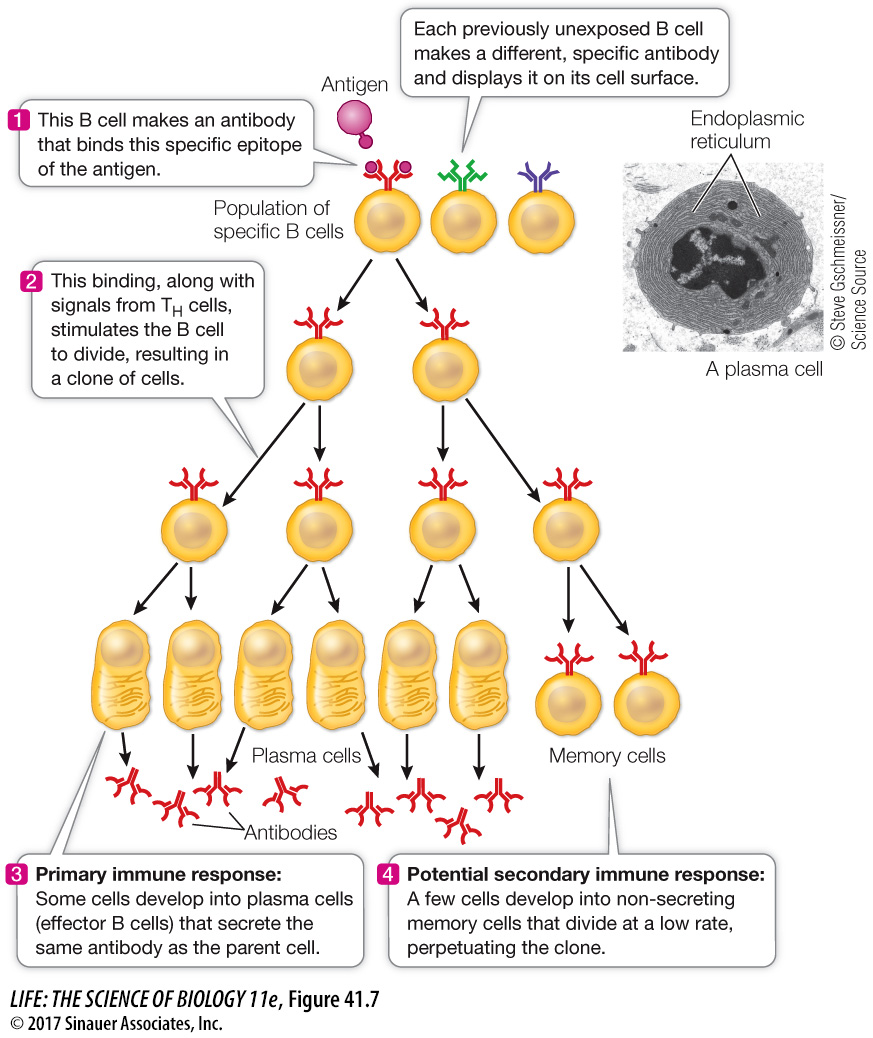Adaptive immunity develops as a result of clonal selection
Before the humoral and cellular immune responses can take place, the body needs to generate a vast diversity of lymphocytes that have the ability to bind different antigens. How does this tremendous diversity arise? As we will discuss in Key Concept 41.4, this diversity is generated primarily by DNA changes—chromosomal rearrangements and other mutations—that occur just after the B and T cells are formed in the bone marrow. Millions of different B cells develop, each of which can produce only one kind of antibody. Similarly, there are millions of different T cells, each with one specific kind of T cell receptor. Thus the adaptive immune system is “predeveloped”—all of the machinery available to respond to an immense diversity of antigens is already there, even before the antigens are ever encountered.
As we have described, when a pathogen enters the vertebrate body it stimulates the innate immune system. In addition to triggering its own defensive responses, the innate immune system triggers adaptive defensive responses via specific antigens that are presented on the surfaces of antigen-presenting cells, particularly dendritic cells. This triggers the proliferation of lymphocytes (B and T cells) that are specific for those particular antigens. How does this proliferation occur? The answer lies in the process of clonal selection: antigen binding “selects” a particular B or T cell for proliferation. When an antigen fits the surface receptor on a B or T cell and binds to it, that cell is activated. It divides to form a clone of cells (a genetically identical group derived from a single cell), all of which recognize and react to the same antigen. This process is illustrated for B cells in Figure 41.7. Binding and activation select a particular lymphocyte, while proliferation generates the clone, hence the term “clonal selection.”

Figure 41.7 Clonal Selection in B Cells The binding of an antigen to a specific receptor on the surface of a B cell stimulates that cell to divide, producing a clone of genetically identical cells to fight that invader. Plasma cells have extensive endoplasmic reticulum for synthesizing antibodies.
Question
Q: You may never have been exposed to Ebola virus. Do you have cells that make antibodies against this virus? Explain.
Small numbers of previously unexposed B cells are constantly differentiating to make antibody against Ebola and any other possible antigen. If there is no Ebola infection, these cells do not form clones in clonal selection and die off. But other previously unexposed B cells making anti-Ebola antibodies take their place.
